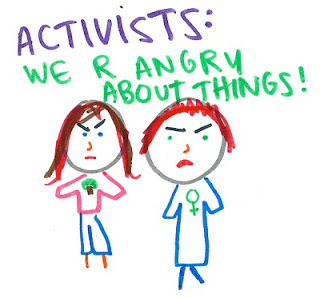Brain studies find that concern for justice and equality is linked to logic, not emotion.
By Lisa Wade, PhD
A new study finds that people with high “justice sensitivity” are using logic, not emotions. Subjects were put in a fMRI machine, one that measures ongoing brain activity and shown videos of people acting kindly or cruelly toward a homeless person.
Some respondents reacted more strongly than others — hence the high versus low justice sensitivity — and an analysis of the high sensitivity individuals’ brain activity showed that they were processing the images in the parts of the brain where logic and rationality live. “Individuals who are sensitive to justice and fairness do not seem to be emotionally driven,” explained one of the scientists, “Rather, they are cognitively driven.”
Activists aren’t angry, they reasonably object to unjust circumstances that they understand all too well.
Image borrowed from Jamie Keiles at Teenagerie, who is a high sensitivity individual.
Lisa Wade is a professor of sociology at Occidental College and the author of Gender: Ideas, Interactions, Institutions, with Myra Marx Ferree. You can follow her on Twitter and Facebook.


No comments:
Post a Comment